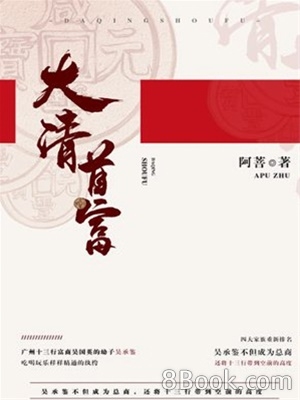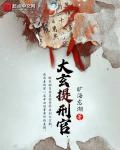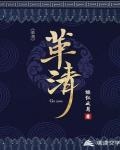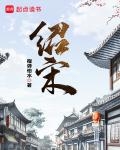Chapter 89: The Dispute over Legalist Techniques (Part 1)
As people of later generations, we may not be as good as the ancients in real-time strategies and decision-making in times of crisis.
But when it comes to hindsight, the ancients, who were deeply limited by the times, and the people of later generations are not on the same level at all.
If Legalism is a game, then Han Fei would be the top-ranked hard-working guy.
Ying Chengjiao is a warrior who has reached the upper limit of krypton gold. My level is not as high as yours, but my combat power is...
"What is the art of the Art School? To put it simply, it is conspiracy and trickery. What is the law of the Legalists? It is the laws and regulations. Shen Buhai used 'art' as 'law', that is, he used conspiracy and trickery to improve the laws and regulations. In the end, after Han Zhaohou died, the laws and regulations were gone. This is what you mean by not using Shen Buhai's law."
"But when a goose passes by, it leaves its feathers behind; when a person passes by, he leaves his traces behind. Shen Buhai implemented the art of governance in Korea. Although he is dead, the traces remain. Korea is still implementing the art of governance. This is what I mean by Shen Buhai's art. Is this clear enough? Are there any questions?"
Hmm? What you said seems interesting.
The laughter of the guests gradually died down, and most of them's eyes lit up, understanding what Ying Chengjiao meant.
In the shadows, an old man with a somewhat fierce voice said: "Your Majesty, this statement is quite interesting. 'Skill' is the means of doing things, and 'law' is the ultimate goal. Laws can be deleted, but the means of doing things are not so easy to delete."
Another person in the shadows said, "When Wu'an Jun was in Yanmen, he ordered the Zhao border troops to return as soon as they heard the horses of the Xiongnu. Anyone who dared to capture prisoners would be killed. This lasted for several years. With just one battle, the Xiongnu dared not to go south for ten years. During this period, the Zhao border soldiers were extremely tough."
"Even after the rumor that Wu'an Jun was beheaded by the King of Zhao spread, the Zhao border troops remained united and fought bravely without any chaos. This is the 'art'. Once the Zhao generals were replaced, their command and decision-making were far inferior to Wu'an Jun. This is the lack of 'law'. Your Majesty, is what I said correct?"
"That's right."
Ying Chengjiao nodded and turned to look at Li Mu who was being praised.
Li Mu was clearly being praised, but there was no joy on his face.
He threw away the empty jar of wine in his hand, opened another one, and drank it.
"I made a mistake."
Li Mu wiped the wine stains from the corner of his mouth with his palm and waved to the guest who was apologizing in the shadows.
Having said this, even the reckless man who had been only concerned with eating understood it, and Han Fei naturally understood it a long time ago as well.
The Legalist Mount Everest frowned and picked up a pen to write on the paper: Your Majesty, are you saying that Shen Zi's governance led to the destruction of the Han Dynasty?
Ying Chengjiao nodded.
Han Fei picked up his pen and continued writing. While writing, he took out another piece of paper from his arms and wrote on two full sheets.
This shows how much Han Fei disagreed with Ying Chengjiao's words:
【Shen Zi advocated that Han Zhaoxianhou use "arts" as an indicator for the assessment of officials in all aspects, and the redundant officials in the court were purged. In terms of economy, Shen Zi encouraged the masses to reclaim more wasteland and plant on it. He encouraged the people to actively raise silkworms and participate in spinning. In terms of military, Shen Zi unified and integrated the military forces of the aristocracy and incorporated them into the military forces of Han. 】
[Shen Zi trained them to enhance the army's combat effectiveness and military combat capabilities. All these measures were to strengthen Han. During Shen Zi's reign, Han became stronger than ever before. Shen Zi used the art of governance to make Han the most powerful country in the world. May I ask your Majesty, what is wrong with the art of governance? ]
Seeing Han Fei's stubborn look, Ying Chengjiao's original idea of arguing with Han Fei suddenly disappeared.
The two pieces of paper on the table were not a debate for Han Fei, but his love for Korea and his confusion about its demise.
If possible, Han Fei, the Korean prince who stuttered and could hardly speak but wrote the 100,000-word masterpiece "Han Feizi", really hoped that the world would be named Han instead of Qin.
Ying Chengjiao gently patted Han Fei's shoulder to relax the stubborn prince of Han, and said softly: "You wrote in Han Feizi: Wang Wu: What the law disapproves, the monarch takes. What the officials punish, the monarch supports. That is, the monarch appoints the people opposed by the law. The monarch supports the people that the officials want to punish. You attribute this to the cause of the fall of Han."
"You believe that when reputation and criticism, rewards and punishments are completely reversed, it will lead to the destruction of laws and prohibitions and the people becoming more chaotic. That is, when laws and prohibitions are destroyed, the country and the people become more chaotic. Have you ever thought about why South Korea, which is known for its righteousness, has become what you said?"
Han Fei had naturally thought about this problem. He took out a piece of paper from his arms and quickly wrote on it: The power of the nobles is strong. Han Zhaoxian and Hou were the last. The kings of Han in successive dynasties all lacked courage and were far inferior to Qin.
Shen Buhai's reforms lasted only during the reign of Han Zhaohou, and later kings of Han did not follow Shen Buhai's laws.
In the Qin State, Shang Yang's laws continued from Qin Xiaogong to the First Emperor.
"Then why is this happening? Is it really because Qin is lucky and has God's help?"
Ying Chengjiao took the brush from Han Fei and wrote a big word "Shu" on the paper.
"Shen Buwei's reform is to use 'technique' to rule 'technique', and he wants the king to use conspiracy to control the ministers. A king should keep his word and make open plans, and not resort to treacherous means."
"When a king is used to using the conspiracies that his subjects are good at to counter their own conspiracies, what is the difference between this king and his subjects? How can this king manage his subjects? The princes of the Kingdom of Han have grown up in such an environment, and have been taught the 'arts' by the King of Han since they were young. If they use too many conspiracies and tricks, how can they have the courage?"
"Since Shen Buhai's reform, Han has been ruled by 'technique' and 'righteousness', and the rulers, ministers and people have followed suit. The rulers, ministers and people have only thought about conspiracy and intrigue, and there is no longer the spirit of a strong country with righteousness. The simple and honest Han has completely fallen into the most ridiculous and absurd country ruled by technology."
"The Korean government and its ministers have always been devoted to avoiding disasters and plotting against others. This is the harm of governing by art."
Han Fei was a very smart person. If he was not smart, he would not have become the first Legalist in history.
Because of this, he understood after Ying Chengjiao finished speaking.
Even if what Ying Chengjiao said completely destroyed the art of governance in his "Han Feizi", it was a huge blow to his Legalist doctrine.
He stared at Ying Chengjiao blankly, and beads of sweat began to drip from his face.
His face turned a little pale, and with trembling right hand he took the brush back from Ying Chengjiao's hand, wanting to write something on the paper.
The trembling brush left ink spots and scratches on the paper, and soon the paper became a mess, just like Han Fei's heart.
Shen Buhai, whom he had always respected as Shen Zi, was the culprit who destroyed his homeland.
He thought that Shin Buhae's Reforms would be an opportunity for Korea to dominate the world, but in reality they were the steps that led Korea to the abyss.
Han Fei, the first of the Legalists, who was a stutterer and not good at speaking but good at writing, really wanted to write something to refute Ying Chengjiao at this moment, to prove that what Ying Chengjiao said was wrong.
But the dots and lines became more and more, and he couldn't write a single word.
He was so stubborn that he refused to put down his pen, just like he was so stubborn that year when he was in the Qin court and refused to offer advice for the Qin State.
Ying Chengjiao sighed, stood up and said, "Let's think back to what South Korea, which has the largest iron mountain in the world, has done in recent years? In an era of great contention, the strong will become stronger and the weak will perish. If you want to seize the world, you can recruit others, but you must strengthen yourself first."
"But Han was very interesting. It was obsessed with governing by art. It did not think about strengthening itself, but only about plotting against others. When Qin occupied Han's territory, Han ceded Shangdang to Zhao, claiming that it was helping Zhao to divert the disaster. Then it ceded eight cities to form an alliance with Zhou, claiming that it was strengthening Zhou and repelling Qin. It sent hydraulic engineer Zheng Guo to Qin to build a large-scale water conservancy project, clearly to strengthen Qin, claiming that it was weakening Qin."
"Since ancient times, has there ever been such an absurd plot? To plot against others, one harms oneself, and does not think of strengthening oneself. The trend of governing by art is prevalent in Korea, and the eccentricity is even more serious. Such a Korea cannot be saved even by heaven. If Korea does not perish, where is the righteous path in the world? Art should not exist in the law."
"Shen Zi" says: Shen Buhai taught Zhao Hou the art of controlling his subordinates.
"Records of the Grand Historian: The Family of Han" says: "Shen Buhai served as prime minister of Han, cultivated the laws and practiced virtue, and the country was well governed, and the princes did not come to invade."
South Korea rose to power because of its tactics and fell because of its tactics.
Everyone who has been to Korea will inevitably be unconsciously exposed to the word "art". Even Han Fei, the master of Legalism who was regarded as an idol by Emperor Ying Zheng, was not immune. He openly included "art of governance" in "Han Feizi" when compiling it.
The one who was most capable of defeating Han Shu's evil spirit was Zhang Liang, one of the three great heroes of the early Han Dynasty, who was praised for his ability to plan and win battles thousands of miles away, and was named Marquis of Liu by Emperor Gaozu of Han, Liu Bang.
It has experienced several generations of turmoil, including the seven major powers of the Warring States Period, the chaotic war at the end of the Qin Dynasty, and the Chu-Han contention for hegemony.
The Qin Dynasty was destroyed by the art of war, and the Han Dynasty was revived by the art of war, which brought the art of war to its peak.
However, Zhang Liang was not able to restore the Kingdom of Han despite his ability. In the end, he realized that the art of war was a minor art that could not be used to govern a country, let alone restore the country, so he could only retire in disgrace.
Emperor Gaozu of Han, Liu Bang, also saw this clearly - one cannot plan for the country by planning for people. When Zhang Liang left, Liu Bang let him go easily.
In contrast, Xiao He, the leader of the three heroes of the early Han Dynasty, resigned several times but Liu Bang refused to let him go, forcing Xiao He to humiliate himself to protect himself. The reason for this is that Xiao He was good at strengthening himself, which is the way to govern a country.
Liu Bang was afraid that as soon as he let Xiao He go, some princes would ask Xiao He to leave and take charge of internal affairs.
After three to five years, the princes will have enough soldiers and generals to fight with the Han emperor for the world.
Therefore, Liu Bang would rather kill Xiao He than let him go.
But these can only be seen by future generations with the eyes of God. People living in the present world are limited by the times and cannot see them.
The Qin Dynasty was the first unified dynasty in history. No one knew how such a large dynasty should be governed and run, and everyone was crossing the river by feeling the stones.
Even Ying Chengjiao, a modern man with a God's perspective, could not govern this new dynasty perfectly - what later generations have learned cannot be applied mechanically, and a system that is suitable for modern times may not be suitable for ancient times.
Although Ying Chengjiao was not sure which ones would work, he at least knew which ones would not.
He said these last words not to attack the poor young man whose homeland had been lost.
He just wanted the stutterer in Chang'an Jun's mansion to know what the Legalists who govern the world should be like - this is the only thing that the most powerful stutterer in the world is still pursuing.
Han Fei is still young and has great talent.
Ying Chengjiao knew that the Chang'an Palace could not hold back the stuttering Han Fei, just like it could not hold back the swordsman Gai Nie.
This era is filled with the afterglow of a hundred schools of thought contending with each other.
One day, when this stutterer ascends the imperial court again, representing the Legalists in the battle against the Hundred Schools of Thought, he will win and lead the vast Qin Empire forward.
Ying Chengjiao did not expect that the path chosen by Jie Ba was the correct one, but at least, he was closer to the correct one.
Snap~
The brush holder broke into two pieces, making a crisp sound when it fell on the table, and also shattered Han Fei's Legalist concept of combining law, technique and power into one.
Han Fei, his face covered in sweat, lowered his head and stood up tremblingly.
Li Mu reached out his hand to steady Han Fei, but Han Fei dodged him.
Han Fei raised his head, and his face was already full of tears without him noticing.
He was about to perform a great salute towards Ying Chengjiao, but Ying Chengjiao raised his hand to stop him.
"You know, I hate red tape."
Han Fei said nothing.
Ying Chengjiao let go.
Han Fei performed another great ceremony.
Ying Chengjiao tried to stop him again.
After several rounds of this, Li Mu tapped the jar of wine and said drunkenly, "Your Majesty, let him be."
Ying Chengjiao sighed and stopped trying to stop him.
Han Fei, the foremost of the Legalists, with sweat and tears mixed on his face, performed a complete apprenticeship ceremony towards Ying Chengjiao.
"Student, student, Han, Han Fei, thank, thank, thank you, Mr. Xie, for resolving my doubts!"
In the shadows, four guests sat upright, looking solemn and dignified.
"Your Majesty's words are a revelation to me. Only now do I realize the dangers of this technique."
"To strengthen oneself and to plot against others, the order of things should not be confused. Tactics can be used, but they cannot be used to govern the country. This is what the king wants to make clear."
"The hundred-year-old Korea has survived by following the technique. How sad!"
"If you were the ruler of Han, you would be able to reverse Han's defeat."
The rough man bit the skewer of meat fiercely, sat on the ground with his legs spread wide, and glanced at Han Fei.
"Why does a man cry?"
Li Mu drank the newly opened jar of wine in one gulp, then he lay on the ground with his limbs spread out, holding the empty jar in his hand, muttering: "Mu has never been defeated in his life..."
The drunkard is drunk again.
The banquet held at Chang'an Jun Mansion has come to an end.
Xianyang Palace, Dazheng Palace.
The conversation between Meng Tian and Ying Fusu also came to an end.
"You are the eldest son of the Qin Empire, and you will rule the world in the future. How can you be trapped here by 700,000 prisoners from Mount Li?"
Meng Tian yelled at Ying Fusu angrily, which was a rare behavior seen in their interactions.
As a childhood friend of the First Emperor, Meng Tian always remembered how happy the First Emperor was when Ying Fusu was born, when he was just a child.
The two fifteen-year-old children looked at the wrinkled little kid with curiosity and were afraid to even touch him, for fear that if they accidentally hit him too hard, the little kid would be gone.
Ying Fusu grew up under the care of Meng Tian, and as Ying Fusu grew up, Meng Tian's love for him, like that of his own son, was gradually mixed with loyalty to the emperor.
Meng Tian's grandfather Meng Ao followed the footsteps of the First Emperor. Whichever prince the First Emperor favored to be the Second Emperor of Qin, Meng Ao would stand by that prince. Meng Ao had no preference among the First Emperor's princes.
But Meng Tian was not like that. Meng Tian favored Ying Fusu from a very early time. He only wanted Ying Fusu to be the second emperor of Qin.
"Your Majesty said that if I could get you out of the Zheng Palace, I would raise my rank by one level. I thought you had committed some serious crime, but it turns out you were only convicted of 700,000 crimes at Mount Li. How can you be a good Qin II?"
Meng Tian was roaring and roaring.
The palace maids and eunuchs of the Da Zheng Palace all stood close to the wall, wishing to even hold their breathing to a minimum.
They dared to cry and beg the eldest prince Ying Fusu not to leave the palace, but they did not dare to say a word in front of the wartime general Meng Tian.
Any minister of the Qin Dynasty who had led troops and fought in wars, as long as he could enter the Xianyang Palace alive, would have killed countless people , and would really draw his sword and kill people if he disagreed with something.
Ying Fusu looked sad, and he sat on his new bed and said dejectedly: "That's hundreds of thousands of lives. How can I watch them die because of me? No matter how you persuade me, I will not leave the Zheng Palace."
Meng Tian looked at Ying Fusu's disappointing appearance and felt so angry that he could not contain himself.
The Qin State was a martial state and its people were warlike.
A young general of the new generation of Qin State, Meng Tian, regarded fighting on the battlefield as commonplace.
He didn't understand why Ying Fusu, who was born and raised in Qin, could be so weak.
He was breathing heavily, and smoke seemed to be coming out of his head. If Ying Fusu was his, Meng Tian's son, he would have slapped him in the face long ago.
Bang~
The slap landed on a stool next to the table in the room, which flew away with great force and hit a eunuch.
The eunuch did not dare to cry out in pain. His face turned pale and his teeth were clenched tightly, and he did not make a sound.
Ying Fusu looked up and did not see the stool hit the eunuch. He only saw the stool fall to the ground three or four times, making a "cracking" sound under the heavy weight.
He stood up and stepped forward eagerly, saying, "Don't let Fusu's matter get you angry."
This sentence made Meng Tian's anger disappear, and was replaced by unspeakable disappointment.
At this time, saying these words...
"Please forgive me, my Lord. I am being rude to Meng Tian."
After he finished speaking, Meng Tian ran away in anger, his clothes rustling.
Meng Tian didn't know when Ying Fusu would be able to leave the Zheng Palace, just like he didn't know whether Ying Fusu was still suitable to be the second emperor of Qin.
"Meng Tian! Meng Tian!"
Meng Tian left so suddenly and hastily that Ying Fusu was not prepared at all. When Ying Fusu reacted, Meng Tian had already left the Da Zheng Palace.
Ying Fusu walked quickly, chasing after Meng Tian while shouting his name.
He had only taken two or three steps when he was stopped by the eunuchs and palace maids in the Da Zheng Palace.
All the palace maids and eunuchs were crowded together, forming a human wall to separate Ying Fusu from the gate of the Zheng Palace.
"Please have mercy on us, young master!"
Their movements were in unison, tears were on their faces, and their voices were filled with pleading.






